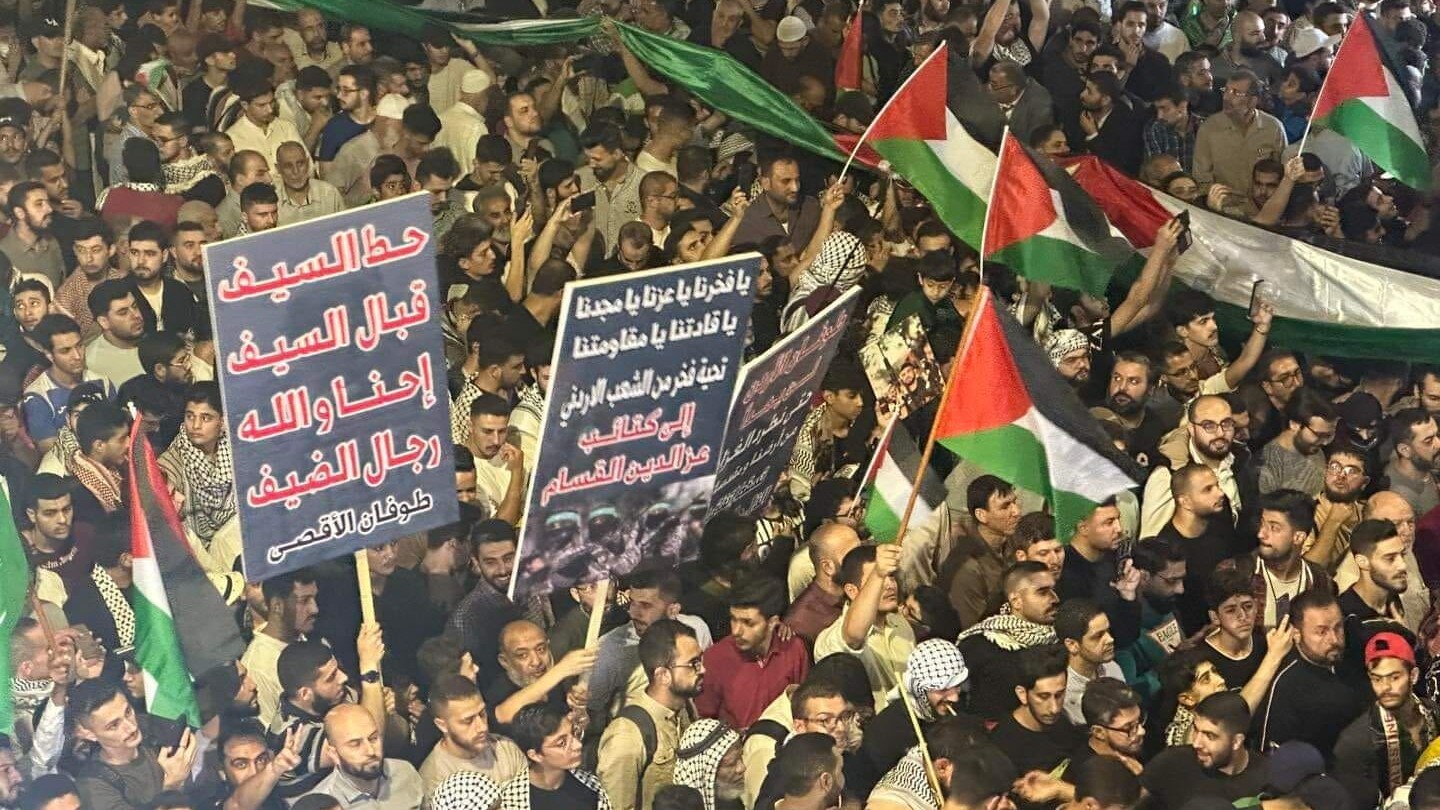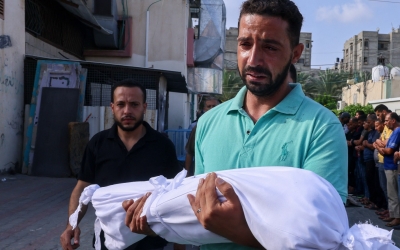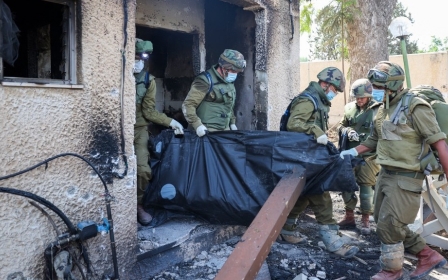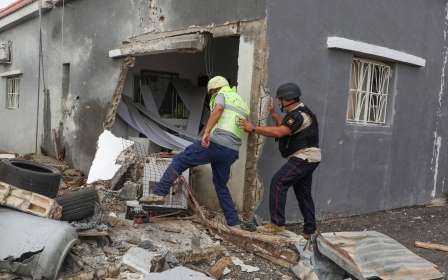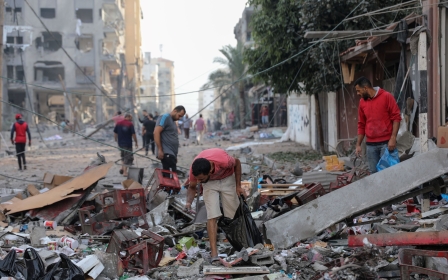Israel-Palestine war: Tensions simmer in Jordan as Hamas urges tribes to join conflict
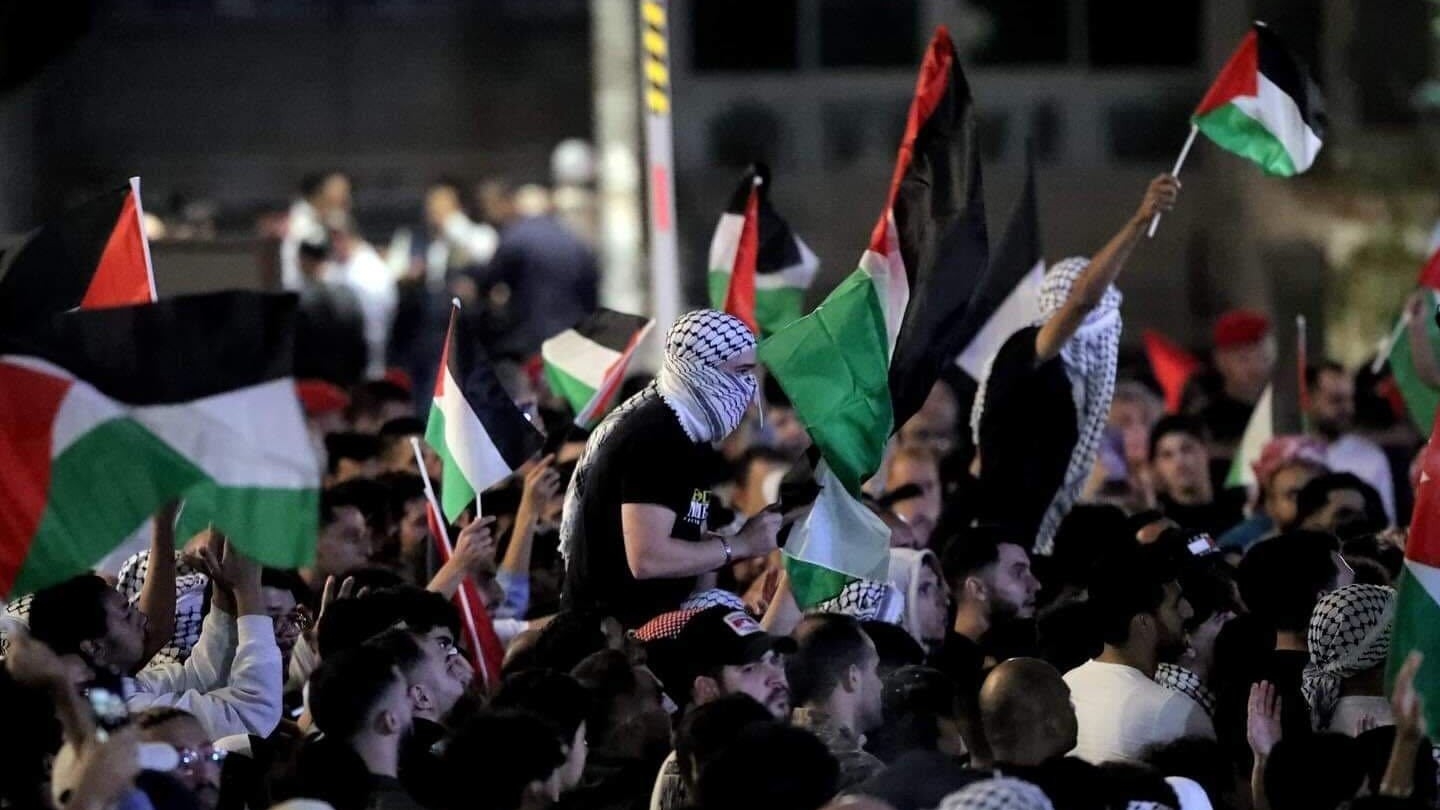
Tensions are simmering in Jordan after the Palestinian group Hamas urged tribes and armies from neighbouring countries to join the fight against Israel, as the death toll continued to mount in the besieged Gaza Strip following a fifth successive night of Israeli air strikes.
Khaled Meshaal, the head of the Palestinian group's office in the diaspora, said on Wednesday that the governments and people of Jordan, Syria, Lebanon and Egypt had a responsibility to support Palestinians in Gaza who were enduring a total blockade.
"Tribes of Jordan, sons of Jordan, brothers and sisters of Jordan… This is a moment of truth and the borders are close to you, you all know your responsibility," Meshaal said.
Hamas launched its biggest attack on Israel in years on Saturday when it carried out a multi-pronged assault on southern Israel, killing more than 1,200 people and taking as many as 100 hostages.
According to Mohammed Deif, the leader of Hamas's military wing, the operation was launched in response to Israeli settlers attacks and repeated incursions at the Al-Aqsa Mosque.
Stay informed with MEE's newsletters
Sign up to get the latest alerts, insights and analysis, starting with Turkey Unpacked
Israel has responded with air strikes that have levelled entire neighbourhoods across the strip, killing more than 1,100 people.
It has also imposed a "complete siege" of the territory of 2.3 million people, cutting off electricity, food, water, and fuel supplies.
The attacks on Gaza triggered a large rally in Amman on Wednesday, where several thousand protesters chanted slogans in support of Hamas and demanded the government close the Israeli embassy and scrap the 1994 peace treaty with Israel.
The organisers, however, fell short of committing to fight against Israel.
Speaking on Wednesday, Jordan's King Abdullah delivered a speech to the nation where he attempted to address mounting criticism over Amman's handling of the Al-Aqsa Mosque and the ongoing conflict.
Follow Middle East Eye's live coverage for the latest on the Israel-Palestine war
Jordan has been the official custodian of Christian and Muslim holy places in Jerusalem since 1924, when Sharif Hussein, the initiator of the Great Arab Revolt against the Ottoman Empire, was publicly acclaimed as the custodian of Jerusalem's holy sites.
Even after Jordan relinquished its claim to sovereignty over the occupied West Bank in 1988, it never abandoned its custodianship of holy places in Jerusalem.
King Abdullah said that peace in the region would not be possible without the emergence of an independent Palestinian state alongside Israel.
"A Palestinian independent and sovereign state should be on the 1967 lines, with East Jerusalem as its capital, so that the cycle of killing ends," King Abdullah said.
Jordanians urge tougher line
Support for the Palestinian cause runs deep in Jordan which is home to around to around two million Palestinian refugees.
Talal al-Madhi, a tribal sheikh from the north of the country, told MEE that the official Jordanian position "is clear, and was expressed by the king.
"He [the king] said the solution to the Palestinian issue is the necessity of establishing an independent Palestinian state. The king previously warned that not granting rights to the Palestinian people led us to this situation," Madhi added.
However, Mohammad al-Hadid, another tribal sheikh, said the official Jordanian line wasn't in-sync with how ordinary Jordanians felt about the conflict.
"The popular position is stronger than the official one that [sees Jordanian authorities] arrest those who smuggle weapons into Palestine," he told MEE.
"We, as members of the tribes, went out and will [continue to] go out. At every protest march."
The National Forum to Support Resistance and Protect the Homeland, a group which comprises various political parties, unions, and independents, called on Jordanians to hold a million-man march on Friday against the bombing campaign of Gaza.
Murad al-Adaileh, the secretary general of the Islamic Action Front Party, said the "million-man march" would be followed by a "large march towards the border with occupied Palestine" on 20 October.
"Everyone should participate in the Friday march. If the occupation succeeds in displacing the people of Gaza to Egypt by force, this will happen in the West Bank. Will the [Jordanian] government and people accept this?" he told MEE.
Jordan lost the West Bank including East Jerusalem to Israel during the 1967 war. Its peace treaty with Israel is widely unpopular among ordinary citizens who see normalisation as a betrayal of the Palestinian cause.
Middle East Eye delivers independent and unrivalled coverage and analysis of the Middle East, North Africa and beyond. To learn more about republishing this content and the associated fees, please fill out this form. More about MEE can be found here.


